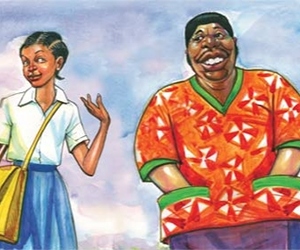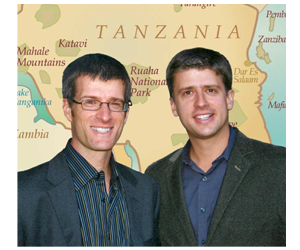I told him it is not good, you are an old man and this one is completely like your child. I think your child would even be older than this one, so this one is your granddaughter, it is not good to do this; If you really had a will to help her you would only give her money and let her go…” (Female, 23 years old)
Cross-generational sexual relationships are common in Tanzania. Driven by financial incentives, these relationships are also propelling the spread of HIV for women in Tanzania because they involve power imbalances and transactional sex. Indeed, the prevalence of HIV among women ages 15-24 is 3.9%, more than twice that of their male counterparts.
Enter the Fataki campaign.
Conversations like the one quoted above are taking place today thanks to a humorous radio campaign in Tanzania.
The Fataki campaign was created by JHU•CCP’s Strategic Radio Communication for Development (STRADCOM) project, a five-year, USAID/PEPFAR-funded project in Tanzania. STRADCOM ran Fataki radio spots on 15 radio stations from 2008 to the present.
The radio spots tell the stories of a Fataki – a “sugar daddy” – who offers money, gifts and promises to a young woman in exchange for sex. In each story, the Fataki’s attempts to prey on the girl are thwarted by her friends, family and community. Every story ends with the same message: “Protect your loved ones from Fataki.”
Tanzanian listeners enjoyed the popular Fataki radio spots and found them to be humorous.
However, a recent evaluation of the campaign demonstrates that Fataki was good for more than just a few laughs; in fact, the evidence has shown that the Fataki campaign has led to greater communication about HIV and the risks of cross-generational sex among Tanzanians.
The evidence is staggering. Parents and elders explain that they now feel empowered to tell men engaging in “Fataki-behavior” to stop. Furthermore, they have the language they needed to discuss appropriate sexual relationships with their daughters and the young women in their community. Teachers have been admonished for inappropriate actions with students. And communities have taken legal action against the Fatakis and developed policies to deal with these individuals.
While there is still plenty of work to be done to reduce the prevalence of HIV in Tanzania, Fataki has enabled the country to take a major step towards addressing one of the drivers of the epidemic.




